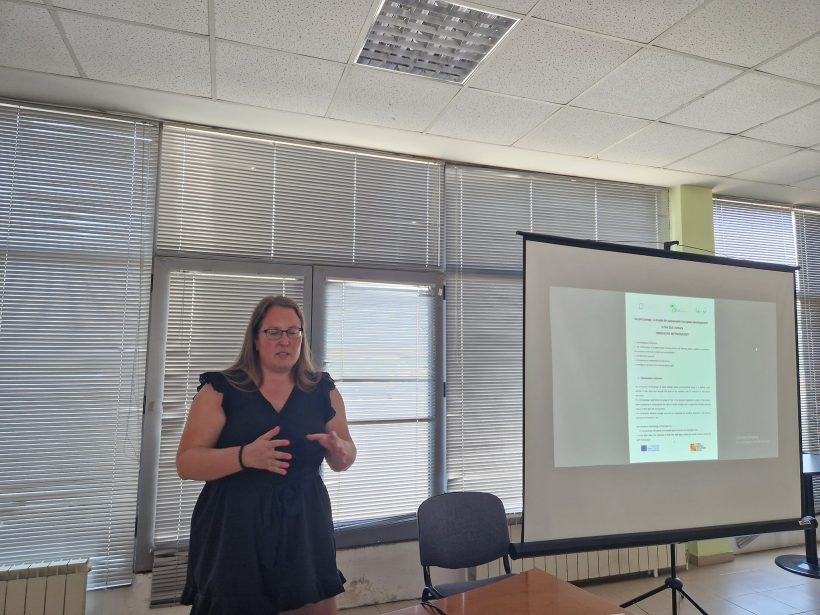

During the period from July 15 to July 21, 2023, the Bulgarian Memory Foundation, in partnership with the “Association for Macedonian-Bulgarian Friendship,” Bitola, Republic of North Macedonia and “Ecocenter Alapitvany”, Budapest, Hungary, implemented a blended mobility for young people, as part of the project “Social ecology – a model for sustainable European development in the 21st century”, 2020-2-BG01-KA205-079309, co-funded by the “Erasmus+” Programme of the European Union, Key Action 2.
The project’s primary goal is to create an interdisciplinary methodology fostering socio-environmental and eco-entrepreneurial knowledge and skills. It targets 15 youth workers and 60 young people from the three countries. The initiative aims to enhance their socio-educational and personal development, and to encourage active civic participation.
Through the project’s implementation, the partners aim to impart knowledge and skills in social ecology to the target groups. This is intended to contribute to addressing contemporary eco-challenges such as climate change, depletion of key natural resources and biodiversity loss.
The young participants were selected based on an application form and the development of an essay on the topic “How can I be part of the solution – what can I do to contribute to nature conservation in my daily life?”
In the first two days, the 60 participants from the three countries got to know each other through various games and interactive sessions prepared by the Bulgarian Memory Foundation team.
On the third day of the project, Ms. Yanitsa Boycheva, a politologist, introduced the participants to the topic: “Social-ecological impact on people’s everyday life”. She shared that an increasing number of studies confirm the interconnectedness of “human-society-economy-nature.” The results of many international studies show that the interaction between the social and ecological environment plays a crucial role in our daily lives.
Environmental changes such as climate change, air pollution, and the reduction of natural resources have a direct negative impact on people’s lives. Tangible issues such as land drought, floods, increased diseases, and reduced food security are just some of the consequences that affect each of us. Social factors such as inequality, migration, and changes in social structure hinder people’s ability to adapt to environmental changes. Different social groups are affected differently, with people of lower social status often being more vulnerable to environmental issues.
These studies call for stronger collaboration between the scientific community, government institutions, and civil society to reduce social-ecological inequality and create sustainable solutions for the future. Overcoming challenges and building sustainable systems are necessary to ensure a better life for all, considering the complex issues related to human contributions to environmental conservation and biodiversity.
During the interactive session that followed her presentation, Ms. Boycheva moderated a game in which participants were divided into six groups and tasked with developing and presenting a solution to a given environmental problem.
The program continued with Ms. Viktoria Varga, project manager at “Ecocenter,” Hungary. She presented the second Intellectual Output developed within the project – the Social Ecological Innovative Methodology. Subsequently, a discussion among participants took place regarding its content and practical applicability.
In the coming days of the event, there are scheduled meetings and discussions with specialists on the topic of social ecology, including representatives of government institutions, environmental organizations and civil society.
*This publication reflects the views only of the author, and the Commission cannot be held responsible for any use, which may be made of the information contained therein.

